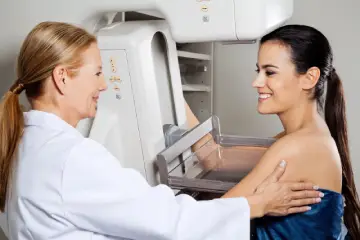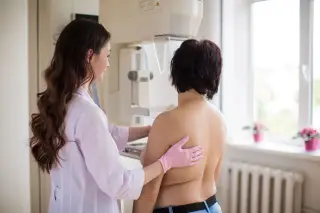PMS
PMS Q & A
What is premenstrual syndrome?
Premenstrual syndrome (PMS) describes physical or mood changes that occur in the days or weeks before your menstrual period. Most women experience at least some PMS symptoms, such as headaches or bloating.
In some cases, these symptoms are so severe that they keep you from going to work or school. The compassionate OB/GYN team at The Women’s Center works with you to find ways to relieve your PMS symptoms.
What are symptoms of PMS?
PMS symptoms may affect your physical, emotional, and mental health. Common symptoms of PMS include:
Physical symptoms
- Food cravings
- Fatigue
- Breast tenderness
- Abdominal bloating
- Pelvic pain
- Skin problems such as acne
- Constipation
- Diarrhea
- Joint or muscle pain
- Alcohol intolerance
- Weight gain
- Headaches
Emotional symptoms
- Depression
- Anxiety
- Irritability
- Insomnia
- Changes in sex drive
- Anger outbursts
- Crying spells
- Poor concentration
- Social withdrawal
These symptoms may change over time. If symptoms of PMS interfere with your life, the caring team at The Women’s Center can help you manage them.
What other conditions resemble PMS?
Symptoms of PMS may mimic or overlap with other medical conditions. Common conditions that resemble PMS include:
- Depression
- Anxiety
- Perimenopause
- Thyroid disease
- Chronic fatigue syndrome
- Irritable bowel syndrome
Mental health disorders, such as depression and anxiety, are the most common conditions PMS occurs with. About half of women who seek treatment for PMS symptoms also suffer from anxiety or depression.
Though emotional symptoms of PMS may be present all month long in women with anxiety or depression, they can worsen in the days leading up to your period.
How do you diagnose and treat PMS?
First, your provider at The Women’s Center performs a thorough physical exam and reviews your medical history. There’s no single test to diagnose PMS, but your provider may ask questions about your symptoms and how much they affect your well-being.
It can be helpful to keep track of your PMS symptoms on a calendar or app on your phone. Take this information with you to your appointment at The Women’s Center.
Treatment for PMS varies depending on your particular symptoms and the severity of your condition. Mild symptoms may resolve with simple lifestyle changes such as getting regular exercise or taking nutritional supplements.
Prescription medicines, such as hormonal birth control, may relieve moderate to severe PMS symptoms.
To find relief from PMS, call The Women’s Center or book an appointment online today.
We Provide You With The Best Services

Mammogram
Learn
More
Routine mammograms are the best way to find breast cancer early when it’s most treatable. The expert OB/GYN team at...




